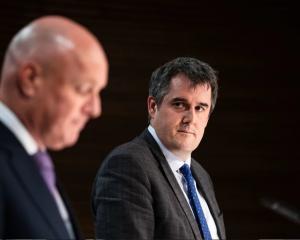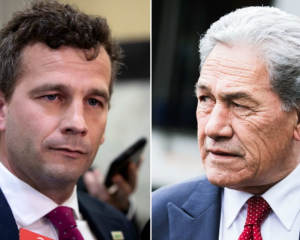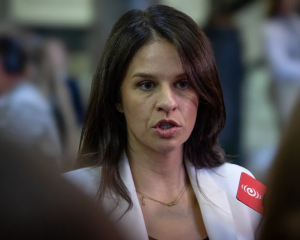As from yesterday, the expenses incurred by each member of Parliament, including spousal travel, will be published every quarter.
Act New Zealand's Sir Roger Douglas, Parliament's most vocal campaigner against wasteful spending of taxpayers' money, was among the highest spending non-ministers.
Part of his $44,411 travel bill was from a trip that he and his wife took to London to see their son and grandchildren.
The taxpayer pays 90% of the air fare under long-standing entitlements.
He told reporters the trip was not all a holiday, but said it was "largely a private trip".
He defended the subsidy on the basis that it was granted to MPs by the Remuneration Authority a long time ago in lieu of big pay rises.
"That was the trade-off they made at the time. They said less wage increases to MPs and they gave us certain entitlements. Go and ask Helen Clark."
Act's questions in Parliament yesterday criticising rising government spending were asked by John Boscawen, not Sir Roger.
Sir Roger's travel to London was paid from the $11 million budgeted in the current financial year to pay for all travel for MPs and their spouses, and former MPs and their spouses.
There is no published estimate of how much those entitlements for former MPs have or will cost, or any breakdown of how the $11 million is expected to be spent.
Regular disclosures of MPs' spending were promised yesterday by Speaker Lockwood Smith, prompted by the recent expenses scandal in Britain.
But Parliament will not be under any obligation to publish the information, and Dr Smith has no desire to place Parliament under the Official Information Act.
Spending by ministers is subject to the Act, and more detail of spending information can be sought.
Prime Minister John Key released ministerial spending figures yesterday, but they are additional to the parliamentary expenditure.
Nelson MP Nick Smith clocked up a $20,310 domestic travel bill as an MP, in addition to his $22,886 domestic travel bill as a Cabinet minister.
He said through a spokesman the costs were high because his wife and children often travelled with him.
He has two stepchildren in Wellington and two children in Nelson.
MPs and their spouses have an unlimited domestic air travel allowance.
Unlike ministerial travel, the purpose of their travel does not have to be work- related.
Labour leader Phil Goff ran up the most expenses as a non-ministerial MP - $124,480.
This comprised $79,027 in surface travel, $35,035 in airfares, $10,294 in Wellington accommodation and $124 in out-of-Wellington accommodation.
The highest spending MP was Labour's Chris Carter, from the Auckland electorate of Te Atatu, with an expense bill of $82,410.
He spent $57,137 on air travel, $14,476 on surface travel and $10,667 on Wellington accommodation.
Mr Carter's expenses included his travel representing the Opposition in China, Britain, the United States and Canada.
The next biggest spender was Hone Harawira, with $79,000.
He serves a large Maori electorate in the northern the North Island.
• Travel perks
For MPs and former MPs elected before 1999
- After nine years: 60% discount.
- After 12 years: 75% discount.
- After 15 years: 90% discount.
- Annual maximum equivalent to Air NZ business class ticket to London (about $10,000).
Present Mps
- Unlimited domestic travel for MPs and spouse.
- Basic salary of $131,000
- $14,800 in bulk-funded allowances for incidentals, no receipts.
- Up to $24,000 for Wellington accommodation (rent, board, hotel or mortgage interest).












